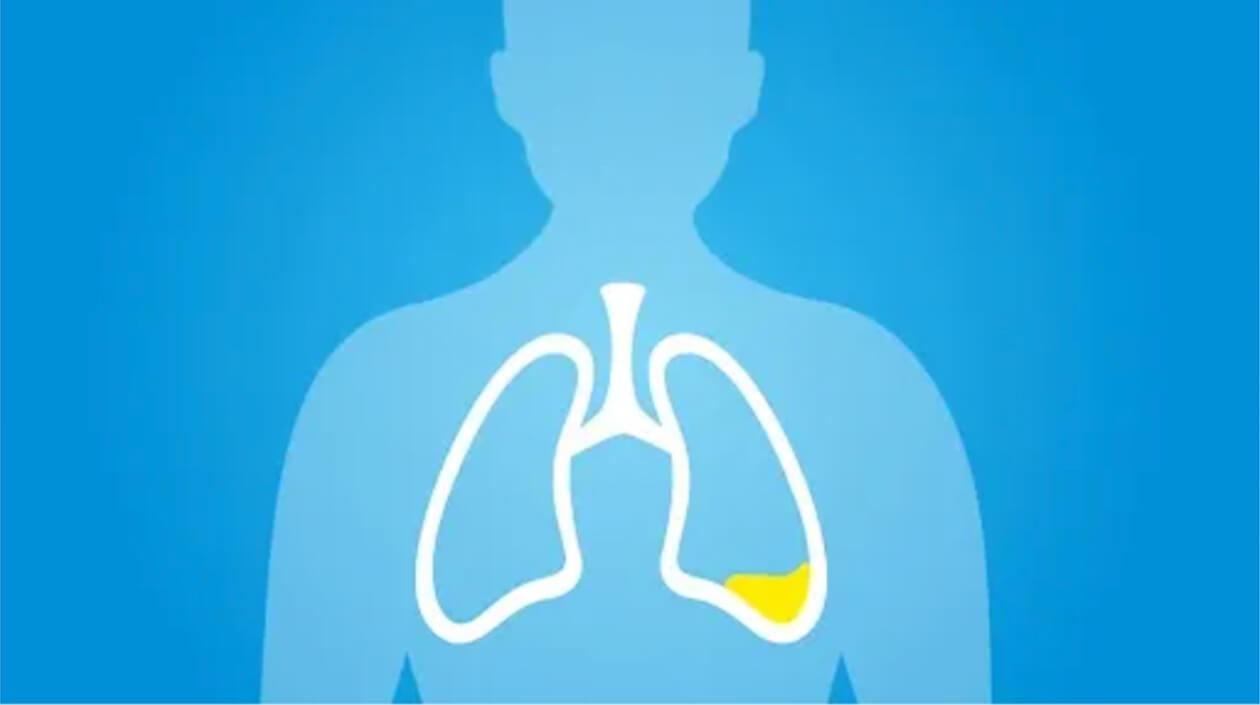

What is Pneumococcal Pneumonia?
Pneumonia is an infection in your lungs. It is caused by different germs, usually bacteria or a virus and sometimes fungi.1 Our lungs are made up of lots of little air sacs (alveoli). Pneumonia causes these to become inflamed and fill with fluid and pus, making it harder to breath.1,2
Take the risk assessment
Answering a few quick questions will help you and your doctor understand if you are at risk of contracting pneumococcal pneumonia.

Start

Question 1 of 4
What is your age?
Age can be a risk factor, even if you're healthy.
- I am a parent of a baby
- I am under 50
- I am 50-64
- I am 65-69
- I am 70 or older
Next
Question 2 of 4
Do you have any of these health conditions?
Certain conditions may put you at higher risk for pneumococcal pneumonia, even if they're under control. The medicines you take may also affect your risk. Select all that apply.
- Yes
- No
Please select all that apply
- Asthma
- Chronic lung disease
- Heart disease
- Diabetes
- Chronic renal failure
- Certain cancers
- Non-functioning spleen (asplenia)
- HIV
Next
Question 3 of 4
Do you take a medicine that suppresses your immune system?
This includes some medicines that treat psoriatic arthritis, rheumatoid arthritis, Crohn's disease or ulcerative colitis, among other conditions.
- Yes
- No
Next
Question 4 of 4
Do you identify as Aboriginal or Torres Strait Islander?
- Yes
- No
Submit
Results
Based on your answers, you may not be at increased risk of pnuemococcal pneumonia right now, but you should still take it seriously. The truth is, your risk actually increases as you age.
NEXT STEPS
Stay vigilant and check in with your doctor if your health circumstances change.
Results
Based on your answers, you may be at
increased risk of pnuemococcal pneumonia
and should take steps to protect yourself.
Next Steps
Talk to your Doctor, Nurse or Pharmacist about how you can protect yourself against pneumococcal pneumonia. Bring a copy of this assessment with you to help get the conversation started.
Download Results
Start over
Here's how it happens

Pneumococcal pneumonia is caused by bacteria called Streptococcus pneumoniae

It can spread from person to person through coughing or close contact

If the bacteria reach the lungs, they can cause some of the air sacs to become inflamed and fill with fluid

This can lead to chest pain, coughing, difficulty breathing and could potentially put you in the hospital
Protect yourself and take action
Helpful ways to protect yourself and prevent the spread of pneumonia1,2
- 1. Avoid contact with sick people; if you are sick, limit contact with others as much as possible.
- 2. Practice good hand hygiene, wash your hands regularly with soap and water.
- 3. Cough and sneeze into a tissue or your arm sleeve (instead of your hands).
- 4. Limit exposure to cigarette smoke; stop smoking (if you smoke).
- 5. Keep up with your health visits.
- 6. Get enough sleep, eat a healthy diet, and exercise to help you stay well.
- 7. Talk to your doctor, nurse or pharmacist about other prevention options, including vaccination.
Ask your doctor about how to protect against pneumococcal pneumonia.
Here are some questions to ask.
- What is pneumococcal pneumonia?
- How do you get pneumococcal pneumonia?
- I'm active and healthy, am I still at risk of getting pneumococcal pneumonia?
- How can I help protect myself against pneumococcal pneumonia?
Bring this guide with you to start the conversation.
Pneumonia FAQs
Can I get pneumococcal pneumonia by getting vaccinated?
Can you get pneumococcal pneumonia anywhere, anytime?
Are you at higher risk for pneumococcal pneumonia as you age?

References
- Pneumonia. Health Direct. Pneumonia - causes, symptoms and treatments | healthdirect Accessed Sep 8, 2023.
- Pneumonia. Lung Foundation Australia. Pneumonia - Lung Foundation Australia Accessed Sep 8, 2023.







